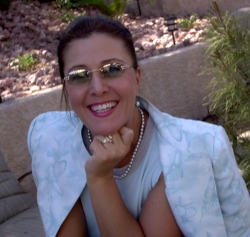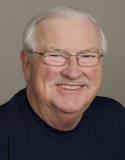The Difference Between Faith and Trust

FAITH and TRUST are very different things. One may even argue, convincingly I assert, faith and trust are contradictory.
Faith and trust are often used interchangeably, as though they’re one and the same.
They are not one and the same. In fact, FAITH and TRUST are very different things. One may even argue, convincingly I assert, that faith and trust are contradictory.
In this examination, I shall attempt to explain this important distinction.
Faith has been called “the substance of hope.” It requires no evidence for belief nor practice. The very nature of faith surmises that tangible evidence doesn’t exist. Otherwise, there is a manifestation.
Trust is largely based on evidence that’s real according to the senses and to human reason. Trust is the core conviction of judgment based on knowledge, instinct, and experience.
To further extend this point and the distinction between faith and trust, consider a common everyday experience:
Imagine walking down a city street. At one point, you step onto a well-marked crosswalk. In doing so, you unwittingly place enormous trust in other people. You trust the drivers of cars and trucks, presumably complete strangers to you to behave safely. They are expected to obey the traffic laws. You trust these drivers will be skilled and sober enough to observe you walking in the middle of the street and will come to a stop, thus allowing you to pass safely.
Based on volumes of evidence — including traffic fatalities that happen frequently in crosswalks, railroad crossings, and the like — placing this trust may be ill-advised. After all, you know nothing about these drivers. They could be drunk or distracted or sending texts and quite possibly not see you. Should that misfortune happen, the end result could be a serious injury, or perhaps even death. Nonetheless, we all step out into crosswalks anyway, usually without even thinking about the risk we are taking. This is because trust is a fundamental provision of daily life and living. We have no choice but to trust other people.
Now in another scenario, let’s suppose this happens:
You step into that same unlit crosswalk — but this time during the night. Let’s assume that most drivers wouldn’t be able to see you crossing until perhaps it was too late, and then you’d be run over. Nevertheless, your decision was made to cross this street in the night based on some wayward faith. Your faith tells you, you’re protected, perhaps even invincible.
One can readily see by this fantasmal make-believe scenario that faith is an utter act of stupidity, if not outright madness. Faith has become dangerous. Not only does faith have no actual basis in truth, but it also lacks a common utility.
Society would be far better with more trust, and less faith.
The late writer and polemic Christopher Hitchens shared the following perspective. He had little regard for faith, writing much to the rancor of conventional thinkers:
Faith is the surrender of the mind, it’s the surrender of reason, it’s the surrender of the only thing that makes us different from other animals. It’s our need to believe and to surrender our skepticism and our reason, our yearning to discard that and put all our trust or faith in someone or something, that is the sinister thing to me. … Out of all the virtues, all the supposed virtues, faith must be the most overrated.
Indeed, it’s peculiar that we regard faith as a virtue at all.
Faith is the abandonment of scientific principles. Faith is the refutation of tangible evidence. Faith, in all its many forms, is a wild jackal roaming the global Serengeti, steeped in the poverty of superfluous instinct, seemingly without cogitation or purpose. In short, faith confuses things and makes the search for actual truth more ambiguous. It clouds judgment.
Unfortunately, faith is too common. The best example of faith in practice is religion and all its intended and unintended fall-out. Billions of global citizens claim to be believers adhering to one faith versus another. Certainly, we’re entitled to believe in spiritual Easter Bunnies and Magic Men and even Flying Spaghetti Monsters if we so choose to. Everyone should have his or her right to believe in Tarot Cards or Santa Claus and have faith that flying reindeer will arrive once a year bearing a new plasma television. But problems do occur when the faithful try to impose these illusory fantasies onto others, often by rule of law, or by force. Even bigger problems occur when the faithful try to inhibit the actions of the faithless. When this occurs, human advancement and scientific progress, so naturally intertwined, come to a screeching halt.
The hurdles of science are challenging enough without the added pitfalls of superstition. Consider how faith has altered and often shaped human history, which continues to the present. Consider the manner by which those claiming to be faithful incite biases against the discoveries of modern science. Whether it’s believing in angels or denying evolution, faith is folly. Faith is not only wrong — but also bad. The very notion that we rest “in God’s hands,” enslaves greater human pursuits. What’s the point of working tirelessly inside a laboratory trying to cure a disease if prayer actually works? Why not toss all the test tubes away and just pray harder? Why have trust (in science and mankind) when there’s faith (in the supernatural)?
Secular-humanism has been defined as “the application of reason and science to the understanding of the universe and the solving of human problems.” To this end, we must trust in the insatiable desires of our most gifted and dedicated to continuing the ways of discovery that benefit us all, and those who follow. Trust becomes a largely positive ideal not only giving life purpose but reaffirming human value.
This stark contrast between faith and trust illustrates the way religious believers and secular humanists look at the world and life differently. While the faithful place their lives at the supposed goodwill of a theoretical supreme being, we secular-humanists are forced to rely on each other. Accordingly, we are required to have trust in each other — which is actually the noblest of virtues.
Not faith, but trust.













As always, thoughtful and interesting…
I tend to think of crossing the road after death is a reason for faith. There is a chance if you have faith there will be stop light to shepherd you across. There is chance if you don’t have faith there will be nothing.
As a rational science minded person, I fear gambling on my afterlife, which may be as short as eternity, is far too costly a bet to not have a horse in the race. Yeah, picking the right faith, may be like picking a powerball ticket, but we still spend $2 on powerball. Upside is too big. Being religious, may sound like a time drainer here but compared to the big picture, this existence is but a blink in time.
I think the rational thing for me is to chose a religion that mirrors my concepts of right and wrong, and to make sure my beliefs align with its core and foundations. Ignore the mythology a bit, if you must, and to a degree hope that if there is a God, he’ll take any godfearing and (to your advantage) any non godfearing GOOD person.
Still, religion isn’t only about trying to win a seat in the big main event, it also offers a salve of the human condition, even if there is no god. I find that asking for forgiveness when you are human and err, and praying for others are their own rewards. That reflection in prayer of who you are and how your transgressed others, only leads to self-improvement and self-actualization.
I don’t doubt there are non-religious ways to accomplish the same thing, meditation and forced introspection, but being religious forces you to do it and enjoy those perks as a side benefit. Also, answering to a higher power, even an illusory one, for me is more motivation to modify my behavior and my treatment of others than to always be able to rationalize myself.
And hey, if the God isn’t as amiable as I’d like to think he is–I mean really is he going to ban the best person on the face of the planet that lives in a tribe that hasn’t heard of Jesus Christ–well, I got one shot to have picked right to get a seat in the hereafter but that’s better than no shot.
I don’t think anybody can deny the familiar atheist critiques against organized religion, they’ve done as much bad (or more bad) then they’ve done good. But they’ve done a lot of good too and still do. Plus, your experience like anything is what you make.
In conclusion, to some selecting a religion that espouses your ideals in what you want to be as a good person, is not necessarily a question of being dumbly faithful, it’s self improvement with an outside shot at the ultimate prize. There are few atheists on deathbeds or in foxholes, and it’s usually because they realize it’s too big a gamble to be “right” based on logic, when being right means you won’t even get to enjoy being right afterwards.
No sir it is not self improvement. By selecting a religion and holding yourself to the tenets of that religion you are serving a purpose of a large organization that seeks to gather more power on this planet and use it for their personal(as in the religions) goals. It is not a gamble at all to live in the fact that there is no supreme being watching over us. If anything it is a freedom and a power stronger than anyone who is a devout believer can experience. You end up with lots of doubt, because you dont know that your actions are right, you seek to improve upon them, you contemplate others opinions with an open mind and you are free to choose and change you mind at any point in time.
When you agree to the tenet that there is a being watching over you and he/she/it/whatever wants you to do these certain things for this purpose. You are limiting yourself and your ability to fully assess your morality and limiting both your potential as a thinker to fully grow, and your potential as a human being.
Faith, is the most dangerous thing that has ever happened to humans as a species of thinkers. Faith is what makes people think they are righteous when killing, looting, ravaging, abusing, and destroying our planet and other people.
Starting at doubt on the other hand, which leads to trust when facts prove something to be trustworthy.
Not true. As you have mentioned above killing, rooting or destroying is the work of the devil. If you have no faith in God i feel sorry for you. Who do you think created life.? Is it evolution as scientists claim it just happened and we all came out of the ocean and due to impact from asteroids? Look around you before posting this nonsense. Look at the newborn baby and tell me God doesn’t exist.
Jesus Christ came to this world because “religion failed”. That’s why he offered a “personal relationship” with each individual.
Jesus didn’t come to the world because religion failed! He came to the world because WE failed ( adams&eve). God bless
It is gratifying to read an author who takes a principled stand on a controversial issue. In an age where the Left and their thought police enforce their version of political correctness this is enviable.
Considering the figurative beatings Bundy and Sterling have taken at the hands of our new thought rulers…. all the more reason to applaud courageous expressions such as this article.
Never mind live and let live or allowing others to think what they may, deviant beliefs must be rooted out and exposed to the rational light of day.
There is no conflict between science and the Christian faith. It takes much more faith to believe as Hitchens did, that life just ends and that the entire universe started from nothing than to have the faith that there is a Creator who has revealed Himself to His created. Christ never forced Himself on anyone, the church is made of humans, who make the news when they make a mistake. The centuries of building orphanages, hospitals, universities, the incredible charity work done by the faithful…. all forgotten. No one has changed history for the better, than Jesus. He is still changing history. Don’t trust me, ask Him and have the faith of a mustard seed, and He will reveal Himself to you too… if you ask in faith believing. For me, life is good and so incredibly blessed since knowing Christ for over 30 years. What ever you choose, find happiness where you are… God bless, andrea
http://www.cnn.com/2007/US/04/03/collins.commentary/index.html?eref=rss_tops
PS: sorry don’t want to argue but I am a Conditionalist. I believe in all of scripture but believing that eternal life is given to those that believe means I do not believe that God tortures the rest of humanity for all eternity bc they did not. They are judged on what they did know… how God does that… IDK. I know He is merciful and just. He is also a “consuming fire” so although I believe in hell I believe God consumes unbelievers, He does not torture them for eternity, nor does it make sense to think He asks us to follow Him out of love and then says “if you don’t I’ll cook you forever”. Thats coercion, often used by well meaning people to get you into heaven. Here is a good video on a man who studied and taught conditionalism. Evangelicals don’t tell you that over 60% of Christians believe this way. God bless, andrea
https://www.youtube.com/watch?v=oHUPpmbTOV4
Man, your statement is incomplete, you forgot the fact that God is also Holy. That no matter what, He cannot someone in His kingdom with a sin, even a tiny drop of it.
*allow
Grace over judgement every time.
If you look at some of the parables of Jesus,ie: the 10 virgins,The wedding Banquet and more, you will see that God intends Christianity to be inclusive not exclusive.Those mentioned in the parables were already inside or included then chose not to be included. No wonder Paul said “Christ died once for all”. I know that seems like a spiritual sleight of hand but it is that simple, choose to believe and trust in Gods wonderful provision of the cross or not. So faith does equal trust.
Peace to All
Sir,
My understanding of human beings are that we do not have an in-
stinct. Instead, God gave us a spirit, soul, body and will. Our soul is made up of mind, will and
emotions. Animals, have a mind and
emotions. However, they don’t have a will. But, they do have an instinct. God made a distinction between human beings and animals.
Oops. Animals also have bodies.
It is scary to see that people will flock to defend their religion so selfishly as if this article was about them at all. This article is stating the difference between faith and trust. Hitchens is correct in thinking that faith is a stand without evidence; and trust is something that is made through experience. Furthermore, faith is dangerous and unchanging; where trust is something that can simply be misplaced, based off prior experiences.
You guys need to stop with your bias nature. You pointed no actual points out from this article, instead you three have just chosen to pick on the man who’s being quoted. all of you simply going on silly tangents from examples within the article. Why didn’t any of you talk about the light-stop scenario? Does that not help you fit your narrative that this is somehow a religious piece?
The main problem with the religious thinking, is that you are inducted to TRUST in faith, with family/Religious experiences and niceties. You know little about what faith is, because you’ve been conditioned to trust it. To trust a stand based on no evidence can make someone dangerous. Some would say that is the definition of delusional.
Respectfully, I submit that you cannot have faith or authentic trust because unlikely as it may seem your childhood made you incapable of it. You and those who follow you in most cases actually yearn for the capability of faith. There is no way I can prove I am not just pimping the book, but you will understand what happened to you in childhood if you read: A New Psychology. Com by John David Klein at Amazon. Hunger and frustration are the alternatives.
Deferentially yours John David Klein at Anewpsychology dot com.
NOLAN DALLA RESPONDS:
Dear Mr. Klein:
Thank you for posting and for your thoughts. I will seek out your book and appreciate you sharing this insight.
— ND
The difference between FAITH or TRUST is very little. To use the example above when we step into a crosswalk you have to TRUST or FAITH in the drivers, and espically at night. You have to TRUST the drivers will follow the laws and not run you over. FAITH works the same way. You have to have FAITH and/or TRUST to even get behind the steering wheel of your own car.
Wow, the antics of those who seek to elevate their knowledge of the world, of mankind, of philosophy, of all wisdom… and yet sound so foolish. Even the self-portrayal pics intended to make one look “wise” and introspective… I had to chuckle. The fool has said in his heart “There is no God” because to ignore all other evidence presented to our mind is the only fool’s way. Seeking the “truth” or just seeking to justify all that you say and do? Selfish to eternity but God still seeks us and loves us enough to want to bring us back to Him through the Christ. Still blows my mind after 50+ years of knowing Him that He still loves me enough to sacrifice His Son for me. No one else has nor will. Good luck with the foolishness of your thoughts of what you think you may know. God is still waiting though…
Thank you Peter for cutting his ear.
Mr. Dalla,
Perhaps there are some who define ‘faith’ in the way you do such that it is not identical to trust. That, however is not representative of, say, the Christian view of faith. On the Christian view, faith is all and only trust that is based on reasons.
Thank you Lord, creator of the heavens and earth for predestiny, for choosing my humble self for salvation and for the ability to have faith and for YOUR faithfulness to me. I TRUST in You…
Argh! You just did it! ?? You used them interchangedly again in the italicized paragraph at the top! This is so confusing and frustrating! Can no one contradict themselves and explain the difference! ???
If I may offer a different metaphor for the difference between trust and faith:
When you first grab a hand rail, you put weight on it to see if you think it would hold you in case you stumble and fall. ‘Trust’ is acting on the mental instinct/estimate that the hand rail IS sturdy enough to support you. While ‘Faith’ is acting on the spiritual belief that even if it isn’t… somehow, you will still survive the fall. =^)
Was looking for more along the lines of a good definition and illustration of faith vs. trust not so much of an opinion-based article like this one. Sharing this link I found further down the page in my search in thinking it could help others who, like me, were looking for more of a definition/illustration based read.
http://www.icr.org/article/faith-vs-trust/
You are describing “blind faith”, not faith in the Christian sense. Faith is based on trust. Trust is contained within faith.
Even “blind faith” is based on a semblance of trust in something or someone.
Sorry – one last thing. Hitchens’ comment, “That which can be asserted without evidence can also be dismissed without evidence.” That is most definitely true. The laughable part is that some people actually believe that their dismissal is of any consequence whatsoever. It is not your observation or acknowledgement that determines reality. You live in a solipsistic delusion.
Faith…is the substance…the governing Influence when exercised,
dominates the cosmic structural integrity of all things.It rules over the very particle common and origin of all we see,feel and Conceive.Makes me glad to relinquish all thought to God.
Actually Faith is developed via trust, which can be experienced. Taking ice in your hand you find that it is cold. Every time. As it happens over and over again you begin to have faith that ice is cold, always. To apply this to God, as you being to trust Him in your life you find He is faithful to you in return. Your faith is developed via the experiential operation of trust. Its not something without evidence..Your logic is flawed.
I’m trying to learn the definition of faith & I come across this nonsensical rant. Google the definition of faith. It says complete trust or confidence in someone or something. I do not trust this article because I have faith in the definition provided by Google.
I liked the last word by Richard above.
You have Faith in some one or something you Trust and You Trust some one or something you have Faith in, including God. Even with Google it works like that. As a Devout Hindu, I do not have Faith or belief in Christianity but I Trust Christ and the concept of Godhood as I believe that I have the faith in the invisible when I fail to trust the visible. Call it Krishna/Christ/God or by any name.
Belief is finding something searched for. Faith is keeping it there.
The more you come to personally know God the Creator you’re faith and trust will increase, all the mysteries of God can only be found in and through your personal relationship with Him.
Nolan found out he was very wrong, but it
was to late for him you can never understand the ways of God until you have been Born Again of the Spirt of GOD. Read the Gospel of John in the Holy Scripture.
By this definition, if Christianity is based on evidence, then it cannot be considered a faith, and those who trust in Jesus based in evidence are acting on trust, not on faith. I Corinthians 15:14 and 17 still use the word “faith” (for the Greek pistis?) in the NIV, but I suppose “trust” would be the better translation given Nolan’s modern English distinction between the two terms. I know a lot of Bibles have the word “hope” where the modern English should probably render a better translation like “expectation” or “anticipation”, or “waiting”. I guess the meaning of words changes over time, but Bible translations aren’t so quick to catch on. Then again, like another comment says, “faith” might not be better defined in the results of a common Google Search than in the content of Nolan’s post. Billy Graham used the wheelbarrow illustration over Niagara Falls. I guess it is like saying that trust is believing the cars will stop at a daytime crosswalk, but faith is actually taking the step into the street and acting in practice on what you trust in theory.
NOLAN REPLIES:
Interesting comments, Glenn. Thanks for contributing.
— ND